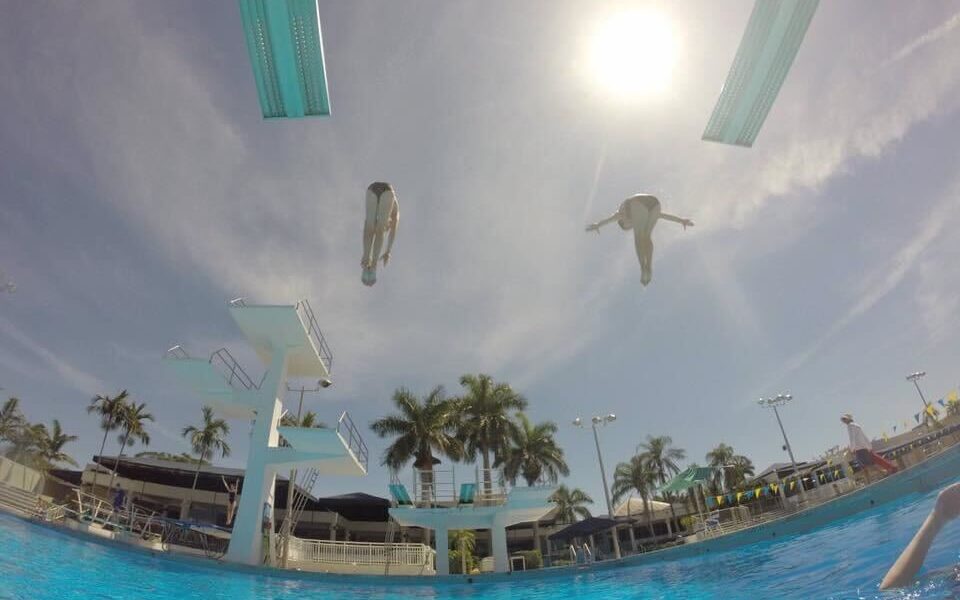My first-ever diving lesson ended with a 20-minute cry on the three-metre springboard and then a tearful drive home where I begged my dad not to make me go back.
I have three main defences of myself here: I was eight years old, terrified of heights, and there against my will. My older sister wanted to try diving and my dad is a strict believer in “if one of you goes, both of you go,” so that’s how I ended up sobbing in the London, Ontario aquatic centre on a fateful Wednesday night in September. Whether he had my embarrassingly intense fear of being above the fifth floor of a building in mind when he signed us up, I’ll probably never know. What I do know is that in the years that followed, I easily spent hours crying on pool decks. While that might not sound like a positive experience, diving equipped me with a confidence and trust in myself that I carry with me to this day.
The unique thing about diving is that the longer you’re involved in the sport, the scarier it tends to get. You are the only person affecting your performance and you pay for every mistake physically. Didn’t lock your elbows on the way in off of 10-metre? I hope your shoulder is still in its socket. Did you lean forward for your knees instead of bringing them to your chest in a reverse 1½? Be sure to ice those welts, but not now because you have to try again so you don’t develop a lifelong fear of this dive. Every painful mistake unlocks a new fear, one that is based on something you know can happen, that has happened.
At age nine, I watched an older diver get hurt doing a simple inward dive—one of the four foundational dives. The image of this girl smacking the water created a mental block in me that lasted years, and I found myself unable to learn this dive. In diving competitions, at least in my time, to move up from the very first competition level, you needed to perform a minimum of one variation of each of the four foundational dives. This meant that no matter how much I progressed in my front, back, and reverse dives, not having an inward dive meant I could never advance competition-wise. This also meant that I spent hours at practice, standing on the end of the board, willing myself to just jump. The mental battle of standing in one spot, with coaches and teammates cheering you on, but just being unable to convince yourself to go is gruelling. The only thing worse than standing there is having to climb off the board because everyone has given up for the night.
After one of these particularly frustrating practices, I got into my dad’s car, slammed the door, and announced I was quitting forever. I didn’t know how to deal with the fact that I was standing in my own way, that the block was completely mental. I was steadfast in my decision until my dad pulled away from hugging me and softly said, “I didn’t know you were a quitter.”
While I wish I could write that I went into the next practice and threw the dive, it’s just not true. But I also didn’t quit. I kept going to practice and I kept standing on that board and one day, I had two realizations that propelled me forward through the entirety of my diving career. First, either I do it and it works or I get hurt so badly that I never have to do it again. Secondly, and most importantly, all I needed was one split second of complete, unabashed, almost delusional faith in myself even if it went against all my instincts. So I did, and god, did it feel good.
I haven’t dove in years. It’s hard when such a huge part of your life becomes reduced to a hobby you had before university. But I know that that part of my life is not constrained to a pool deck. I feel it. When I get really anxious or second-guess myself, whenever I stand in my own way, I’m back on the end of that diving board, I close my eyes, I internalize that delusional self-trust, and I jump.









